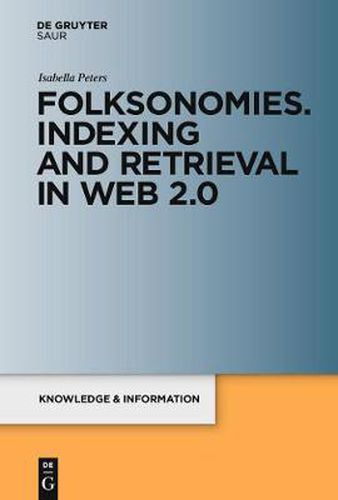Readings Newsletter
Become a Readings Member to make your shopping experience even easier.
Sign in or sign up for free!
You’re not far away from qualifying for FREE standard shipping within Australia
You’ve qualified for FREE standard shipping within Australia
The cart is loading…






This title is printed to order. This book may have been self-published. If so, we cannot guarantee the quality of the content. In the main most books will have gone through the editing process however some may not. We therefore suggest that you be aware of this before ordering this book. If in doubt check either the author or publisher’s details as we are unable to accept any returns unless they are faulty. Please contact us if you have any questions.
In Web 2.0 users not only make heavy use of Col-laborative Information Services in order to create, publish and share digital information resources - what is more, they index and represent these re-sources via own keywords, so-called tags. The sum of this user-generated metadata of a Collaborative Information Service is also called Folksonomy. In contrast to professionally created and highly struc-tured metadata, e.g. subject headings, thesauri, clas-sification systems or ontologies, which are applied in libraries, corporate information architectures or commercial databases and which were developed according to defined standards, tags can be freely chosen by users and attached to any information resource. As one type of metadata Folksonomies provide access to information resources and serve users as retrieval tool in order to retrieve own re-sources as well as to find data of other users.
The book delivers insights into typical applications of Folksonomies, especially within Collaborative Information Services, and discusses the strengths and weaknesses of Folksonomies as tools of knowl-edge representation and information retrieval. More-over, it aims at providing conceptual considerations for solving problems of Folksonomies and presents how established methods of knowledge representa-tion and models of information retrieval can successfully be transferred to them.
$9.00 standard shipping within Australia
FREE standard shipping within Australia for orders over $100.00
Express & International shipping calculated at checkout
This title is printed to order. This book may have been self-published. If so, we cannot guarantee the quality of the content. In the main most books will have gone through the editing process however some may not. We therefore suggest that you be aware of this before ordering this book. If in doubt check either the author or publisher’s details as we are unable to accept any returns unless they are faulty. Please contact us if you have any questions.
In Web 2.0 users not only make heavy use of Col-laborative Information Services in order to create, publish and share digital information resources - what is more, they index and represent these re-sources via own keywords, so-called tags. The sum of this user-generated metadata of a Collaborative Information Service is also called Folksonomy. In contrast to professionally created and highly struc-tured metadata, e.g. subject headings, thesauri, clas-sification systems or ontologies, which are applied in libraries, corporate information architectures or commercial databases and which were developed according to defined standards, tags can be freely chosen by users and attached to any information resource. As one type of metadata Folksonomies provide access to information resources and serve users as retrieval tool in order to retrieve own re-sources as well as to find data of other users.
The book delivers insights into typical applications of Folksonomies, especially within Collaborative Information Services, and discusses the strengths and weaknesses of Folksonomies as tools of knowl-edge representation and information retrieval. More-over, it aims at providing conceptual considerations for solving problems of Folksonomies and presents how established methods of knowledge representa-tion and models of information retrieval can successfully be transferred to them.